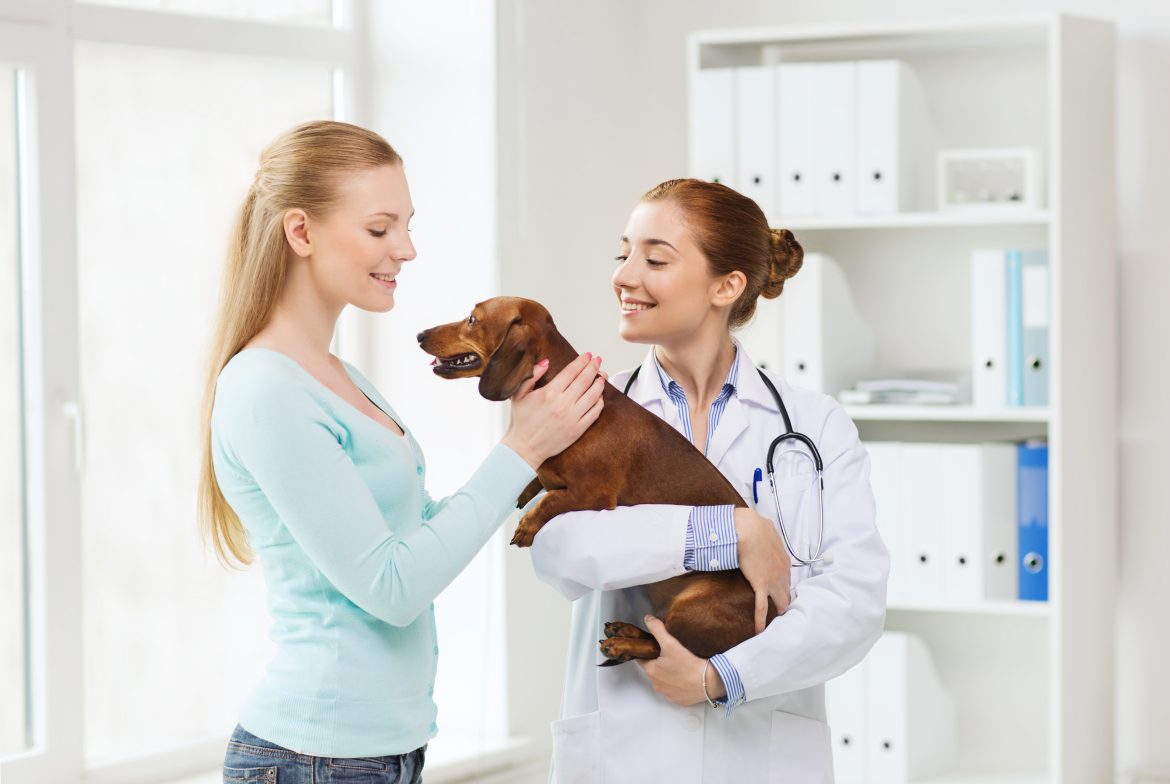We give you a simple, four-step pet preparation routine to help you stay cool, calm and collected when you take your lovable pet for their procedure.
Getting your pet ready for surgery can be stressful. Whether it’s a routine dental procedure or a more intensive type of surgery, every pet owner worries about the wellbeing of their pet when they go under the knife.
Our 4-Step Pet Preparation Guide
1. The week before
One week before your dog’s surgery might seem a little early to start preparing, but serious procedures can be nerve-racking and it’s a good idea to start thinking about the procedure well in advance so that you’ll be cool as a cucumber when the day of the surgery comes around.
Around one week before your surgery is usually a good time to start thinking about any necessary tests that need to be done before your canine companion goes under anaesthetic. Additional tests might be needed to help the vet determine that your pet is in good health and will come through the surgery successfully.
These tests will also pick up any potential issues that could compromise the surgery. Most of the tests are routine and could include a blood work-up, radiographs, ultrasounds, and other diagnostic tests to ensure that your dog’s surgery goes smoothly.
Read this: Cherry Eye in Dogs: What You Need to Know
2. The night before
It’s important to ask your vet for clear instructions about the correct procedure to follow the night before your pet’s surgery, as instructions may differ between individual pets. Most pets can’t take their normal medication or eat their normal meals before a surgery. So, that means absolutely no treats for Buster tonight, no matter what kind of cute, puppy dog eyes he gives you.
There may also be restrictions on your pet’s normal exercise routine which will limit their movement in order to prevent excessive strain or unnecessary exertion before their surgery – especially if they are going in for a type of orthopaedic surgery.
The night before the procedure may also be a good time to start preparing your home for post-surgery puppy care so that it’s ready for your furry friend when you bring him home from the hospital. Make sure you have the necessary medication and any special food requirements for the days to come.
It may also be a good idea to set up a separate area for your animal away from any other pets in your home while they recover in order to prevent any injuries or strenuous activity as your dog will still be pretty weak after the procedure.
Another pro tip: wash your bedding the day before you leave for the surgery in order to lower the risk of infection when you get home, since pets are especially vulnerable to bacterial infections after surgery.
3. The morning of the surgery
The most important thing to remember is that, just like us, your pup shouldn’t have food or water before the procedure as it could compromise the surgery. Eating and drinking could cause your dog to aspirate while under anaesthesia if food or water enters their airways, which is a pretty scary thing to think about. This could be potentially life-threatening, so it’s important to take your vet’s advice seriously.
It’s also always a good idea to arrive early at the veterinary clinic on the day of the surgery. Consult your vet to check how early you should arrive as some vets may ask you to come an hour or two before the surgery for additional blood tests and catheter placement.
Arriving a little early will also give you and your furry best bud a chance to calm down and settle your nerves before the procedure.
Discover: The Easiest Way to Do a Dog Health Check at Home: 6 Steps
4. Post-op care
Your veterinarian will usually give you a set of detailed instructions about how to fully take care of your precious pup post-surgery. Your vet will provide a list of recommended medications to help with any pain and reduce the risk of infection.
If there is a deep incision, your veterinarian may also send your dog home with a cone (poor boy) so that he doesn’t bite the area that has been operated on. Unfortunately, that area will most likely be a bit irritated, and your pup will feel a bit uncomfortable for a few days after the surgery. If you’re a savvy pet parent, you can put your skills to the test and try making your own DIY pet cone at home.
Your veterinarian may also recommend restricted activity for a week or two. This can be hard to enforce when it comes to the more energetic breeds, but it’s crucial for their healing that you start slow after surgery. Try to place your dog in his crate or a restricted area of the house for the time being. If that doesn’t work, you may have to chat to your vet about prescribing a sedative.
Over the next few weeks, everything should go smoothly but it’s still essential that you follow your vet’s instructions precisely and continue to keep an eye out for any unusual behaviour that signals that you should take your pet to the vet.
Most importantly, don’t ever be shy to give your vet a quick call if it looks like there’s something up with your pup. It’s always better to have the peace of mind that your pup is on his way to recovery and in good health.
Make Sure You’re Covered
Often times, the most stressful part about sending your pet in for a procedure is the vet bills that come afterwards. There aren’t many of us out there who can afford to fork out anything between R10,000 and R50,000 for an unexpected medical procedure for our pets, so finding the money for these things can put some serious strain on our budgets.
On the flip side, there are also those unfortunate cases where pet parents simply don’t have the financial resources to be able to afford surgical procedures for their pets, and end up euthanising them instead because they have no other option… it’s sad, but true.
Related: What does pet insurance actually cover?
The easiest way to avoid finding yourself and your pet in this situation is to get pet insurance that will cover the majority of these expensive vet bills for a small monthly fee.
If you’re looking for a trustworthy insurer, we always recommend Oneplan Pet Insurance because their plans start from only R60pm and they pay you BEFORE you see the vet with their Oneplan Claim Card and App (they also let you keep your favourite vet)!
But don’t take our word for it, have a look at their range of plans or get an instant online quote to see how they can help you take care of your fur baby’s vet bills.
Yours in Not-So-Average Pet Advice,
The Petinsurance.co.za Team



